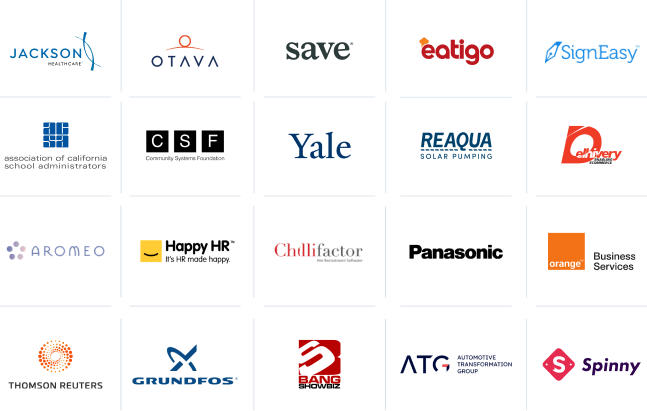How data science and artificial intelligence are related?
Data science and artificial intelligence (AI) are closely related fields that complement each other.
Data science services involve extracting, analyzing, and interpreting large volumes of data to gain insights and solve complex problems. It encompasses various techniques and methodologies, such as statistical analysis, data mining, and predictive modeling.
Artificial intelligence, on the other hand, focuses on developing intelligent systems that can mimic human intelligence and perform tasks that typically require human intelligence, such as:
- Understanding natural language
- Recognizing images
- Making decisions
- Learning from experience
AI consulting services utilize algorithms and models to process data and make intelligent predictions or decisions.
Data science is a foundation for AI by providing the necessary data and analytical techniques to train and improve AI models.
AI enhances data science by enabling automated data analysis, pattern recognition, and predictive modeling at scale. AI algorithms can process vast amounts of data efficiently, identify patterns, and uncover hidden insights that may not be apparent through traditional data analysis methods.
Overall, data science and AI consultancy and services are interconnected disciplines that work hand-in-hand to extract valuable insights from data and create intelligent systems capable of learning and making informed decisions.
Together, they offer powerful tools and techniques to tackle complex problems, drive innovation, and transform various industries.
How can data analytics and business intelligence help a business grow?
Data science and artificial intelligence (AI) have the potential to improve business operations and decision-making processes significantly. Here are some key ways they can bring about these improvements:
Enhanced Insights
Businesses can extract valuable insights from large and complex datasets by applying data science techniques. These insights provide a deeper understanding of customer behavior, market trends, and operational inefficiencies, enabling businesses to make more informed decisions.
Predictive Analytics
Data science and AI enable businesses to leverage predictive analytics models that forecast future outcomes based on historical data. This helps identify potential risks, opportunities, and market trends, allowing businesses to adapt their strategies and operations proactively.
Process Automation
AI technologies like machine learning and robotic process automation can automate repetitive and rule-based tasks. This streamlines business operations reduces errors, and frees up human resources to focus on more strategic and value-added activities.
Personalization and Customer Experience
Businesses can gain insights into individual preferences and behaviors by analyzing customer data. This enables personalized marketing campaigns, tailored product recommendations, and improved customer experiences, increasing customer satisfaction and loyalty.
Operational Efficiency
Data science and AI can optimize various aspects of business operations, such as supply chain management, inventory forecasting, and resource allocation.
By analyzing historical data, businesses can identify bottlenecks, streamline processes, and optimize resource utilization, resulting in cost savings and improved efficiency.
Fraud Detection and Risk Management
Data science and AI can help businesses identify and mitigate risks, such as fraudulent activities or cybersecurity threats.
Advanced algorithms can detect anomalies in data patterns, flag suspicious transactions, and provide early warning systems for potential risks.
Real-time Decision-Making
With the help of AI algorithms, businesses can process and analyze data in real-time, enabling faster and more accurate decision-making.
This is particularly valuable in dynamic and fast-paced industries where timely actions can make a significant difference.
What are the key business challenges that data science and artificial intelligence can help address?
Data science and artificial intelligence (AI) can help address several key business challenges. Here are some of them:
Data Overload
In today’s digital age, businesses face the challenge of managing and extracting insights from vast data.
Data science techniques and AI algorithms can help process and analyze this data, uncovering valuable patterns and insights that drive informed decision-making.
Decision-making Complexity
Businesses often encounter complex decision-making scenarios that involve multiple variables and uncertainties.
Data science and AI enable businesses to build predictive models and decision support systems that assist in analyzing different scenarios, evaluating options, and making optimal decisions.
Customer Understanding
Understanding customer preferences, behaviors, and needs is crucial for businesses to tailor their products and services effectively.
Data science and AI techniques like customer segmentation and sentiment analysis enable businesses to gain deeper insights into customer patterns and preferences, facilitating personalized marketing strategies and improved customer experiences.
Operational Efficiency
Streamlining business operations and optimizing resource allocation are ongoing challenges for organizations.
Data science and AI can help identify inefficiencies, automate repetitive tasks, and optimize processes, leading to improved operational efficiency, reduced costs, and increased productivity.
Fraud Detection and Risk Management
Businesses face various risks, including fraudulent activities, cybersecurity threats, and financial risks.
Data science and AI algorithms can analyze large datasets, identify anomalies, and detect patterns associated with fraudulent behavior or potential risks, enabling businesses to take proactive measures to mitigate these risks.
Product Development and Innovation
Developing innovative products and services that meet customer demands is challenging for businesses.
Data science and AI can assist in market research, trend analysis, and predictive modeling to identify emerging opportunities, understand customer preferences, and drive innovation.
Market Competition
In highly competitive markets, businesses must stay ahead by making strategic decisions and adapting to changing market conditions.
Data science and AI give businesses the tools and insights to analyze market trends, monitor competitor activities, and optimize pricing strategies, giving them a competitive edge.
What are some real-world examples of businesses that have utilized data science?
Several real-world examples showcase businesses across various industries’ successful utilization of data science service. Here are a few notable examples:
Netflix
The popular streaming service leverages data science to personalize user recommendations. By analyzing user viewing patterns, ratings, and interactions, Netflix suggests personalized content to its subscribers, improving customer satisfaction and engagement.
Amazon
Amazon utilizes data science for various purposes, including personalized product recommendations, inventory management, and demand forecasting.
Their AI-powered virtual assistant, Alexa, utilizes natural language processing and machine learning to provide a seamless voice-enabled shopping experience.
Tesla
Tesla’s self-driving cars incorporate advanced AI and data science techniques to navigate roads, detect obstacles, and optimize driving efficiency.
Tesla collects real-time data from its vehicles to improve its autonomous driving algorithms and enhance their vehicles’ overall safety and performance.
Starbucks
Starbucks leverages data science to optimize its store locations and enhance the customer experience.
By analyzing customer preferences, demographics, and transaction data, Starbucks identifies ideal store locations and designs personalized offers and rewards for its customers.
IBM Watson
IBM Watson is a prominent example of AI technology in various industries. It has been utilized in healthcare for diagnosing diseases, in finance for fraud detection, and in customer service for chatbots and virtual assistants, among other applications.
Uber
Uber employs data science techniques for real-time demand forecasting, surge pricing, and route optimization. These algorithms enable Uber to match drivers with passengers efficiently, reduce wait times, and improve overall service quality.
These examples illustrate how businesses across different sectors leverage data science to enhance their operations, improve customer experiences, and drive innovation.
The successful integration of these technologies has proven instrumental in gaining a competitive advantage and delivering value to customers.
What are the business risks and challenges associated with implementing data science, and how can they be mitigated?
Implementing data science in business operations has certain risks and challenges. Here are some common ones and potential mitigation strategies:
Challenge #1: Data Quality and Integrity
Poor data quality can lead to inaccurate insights and flawed decision-making.
Mitigation: Establish data governance practices, including data cleaning, validation, and regular audits. Implement robust data collection and storage processes to ensure data accuracy and integrity.
Challenge #2: Lack of Skilled Talent
Finding and retaining skilled data scientists and AI professionals can be challenging due to high demand and limited supply.
Mitigation: Invest in training programs, collaborate with universities, and foster a learning culture to develop in-house expertise. Partner with external consultants or organizations to access specialized skills when needed.
Challenge #3: Model Interpretability and Bias
Complex AI models may lack interpretability, making it challenging to understand and explain their decisions. Additionally, biases in data can lead to biased outcomes.
Mitigation: Employ interpretable AI techniques and establish rigorous model validation processes. Regularly assess bias models and proactively mitigate any biases identified.
Challenge #4: Change Management and Adoption
Integrating data science into existing business processes may face resistance and require organizational change.
Mitigation: Develop a comprehensive change management strategy that includes communication, training, and stakeholder involvement. Foster a data-driven culture and highlight success stories to encourage adoption and acceptance.
Challenge #5: Scalability and Infrastructure
Scaling data science infrastructure can become challenging as data volumes grow.
Mitigation: Design scalable architecture and invest in vital computing resources. Leverage cloud-based platforms that offer flexible and scalable infrastructure for data processing and model deployment.
Challenge #6: Regulatory and Legal Compliance
Compliance with evolving data protection and AI regulations can be complex.
Mitigation: Stay informed about relevant regulations and ensure compliance. Engage legal experts to review data usage policies, privacy practices, and AI applications to mitigate legal risks.









